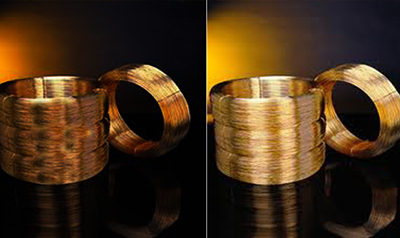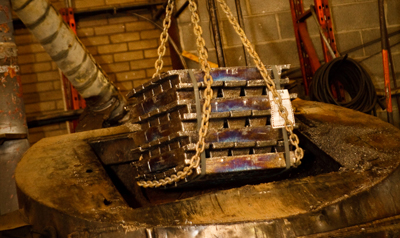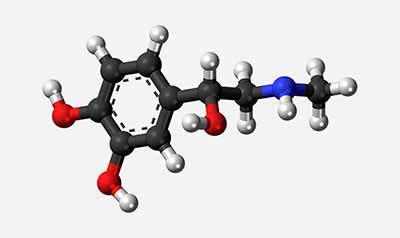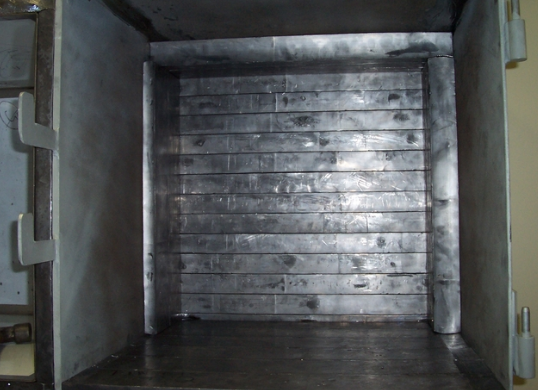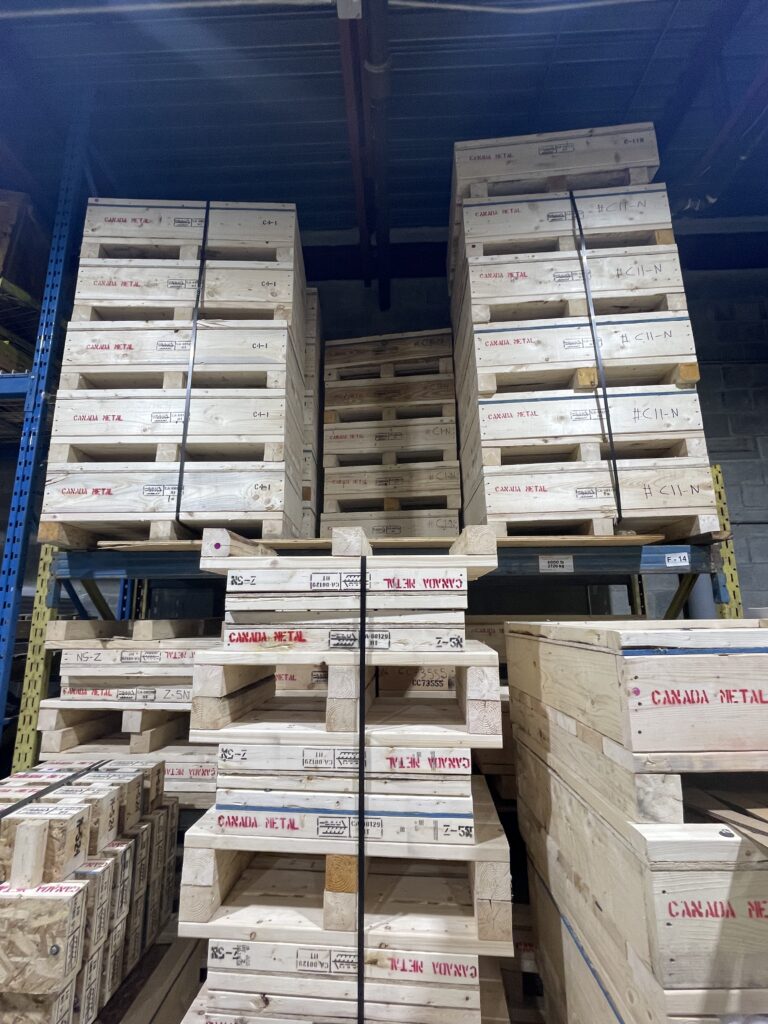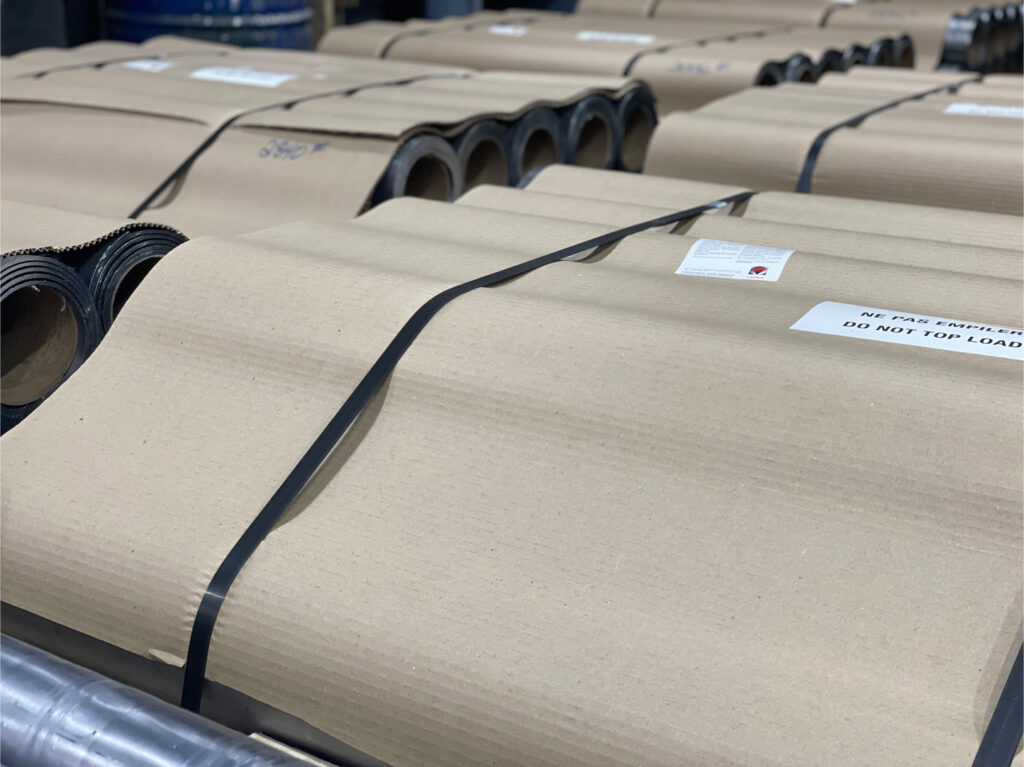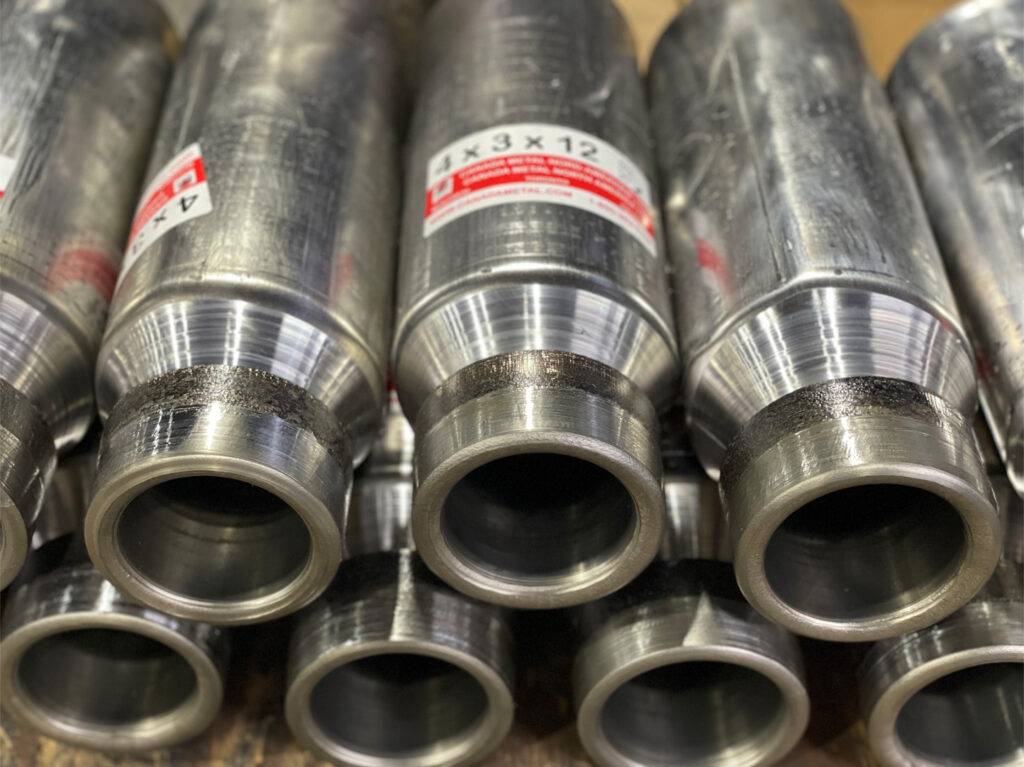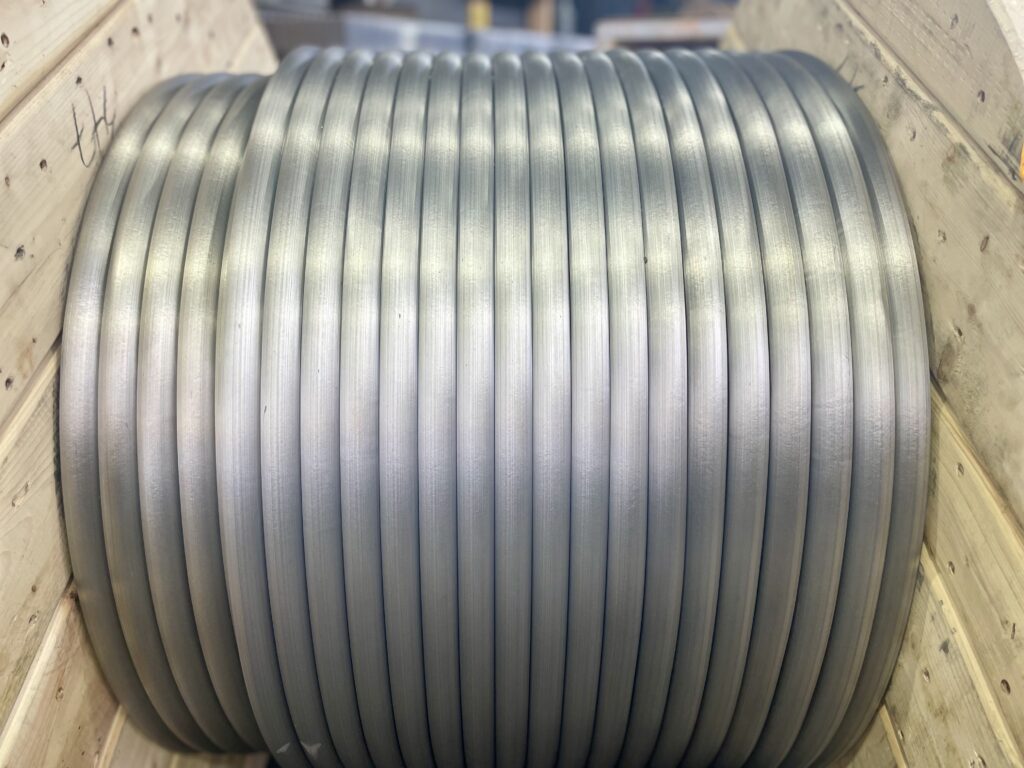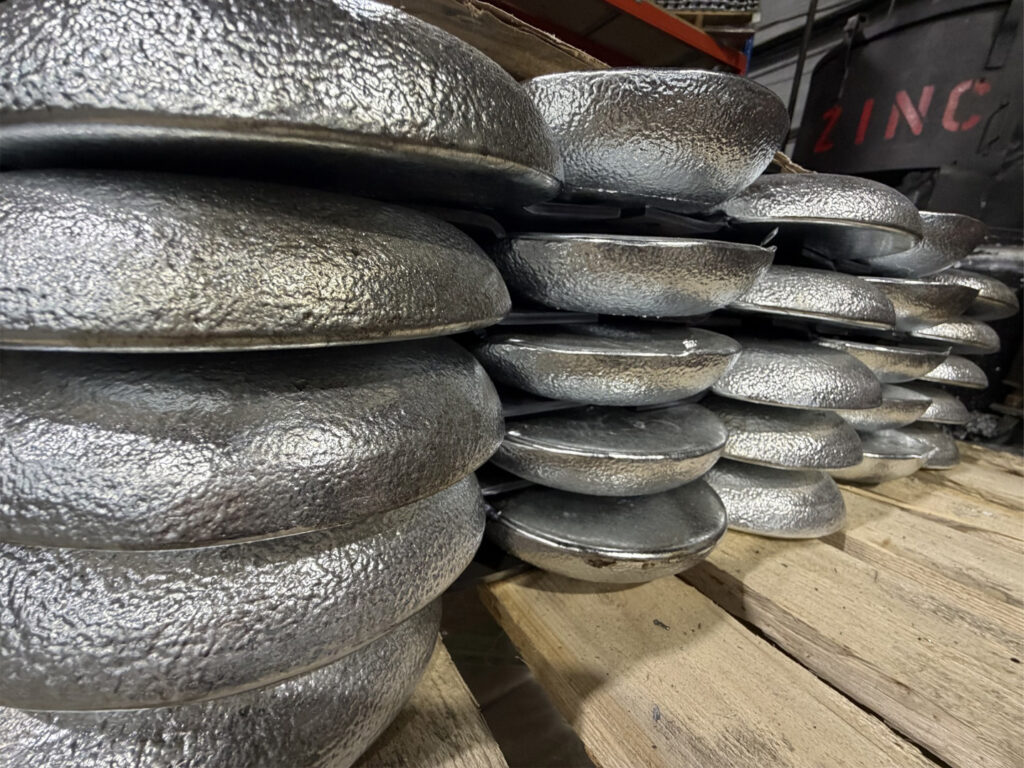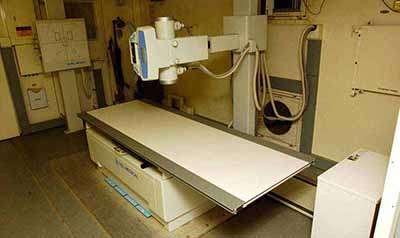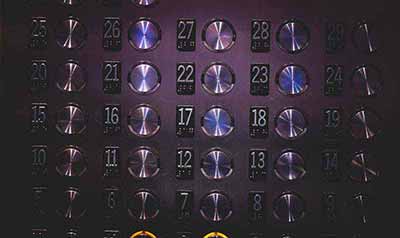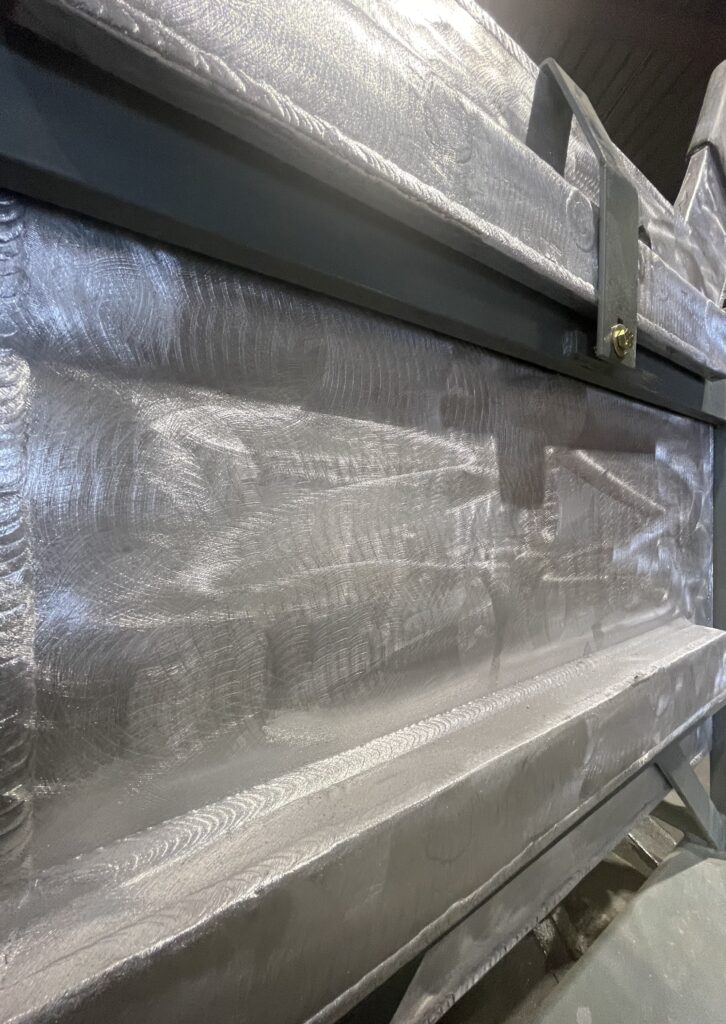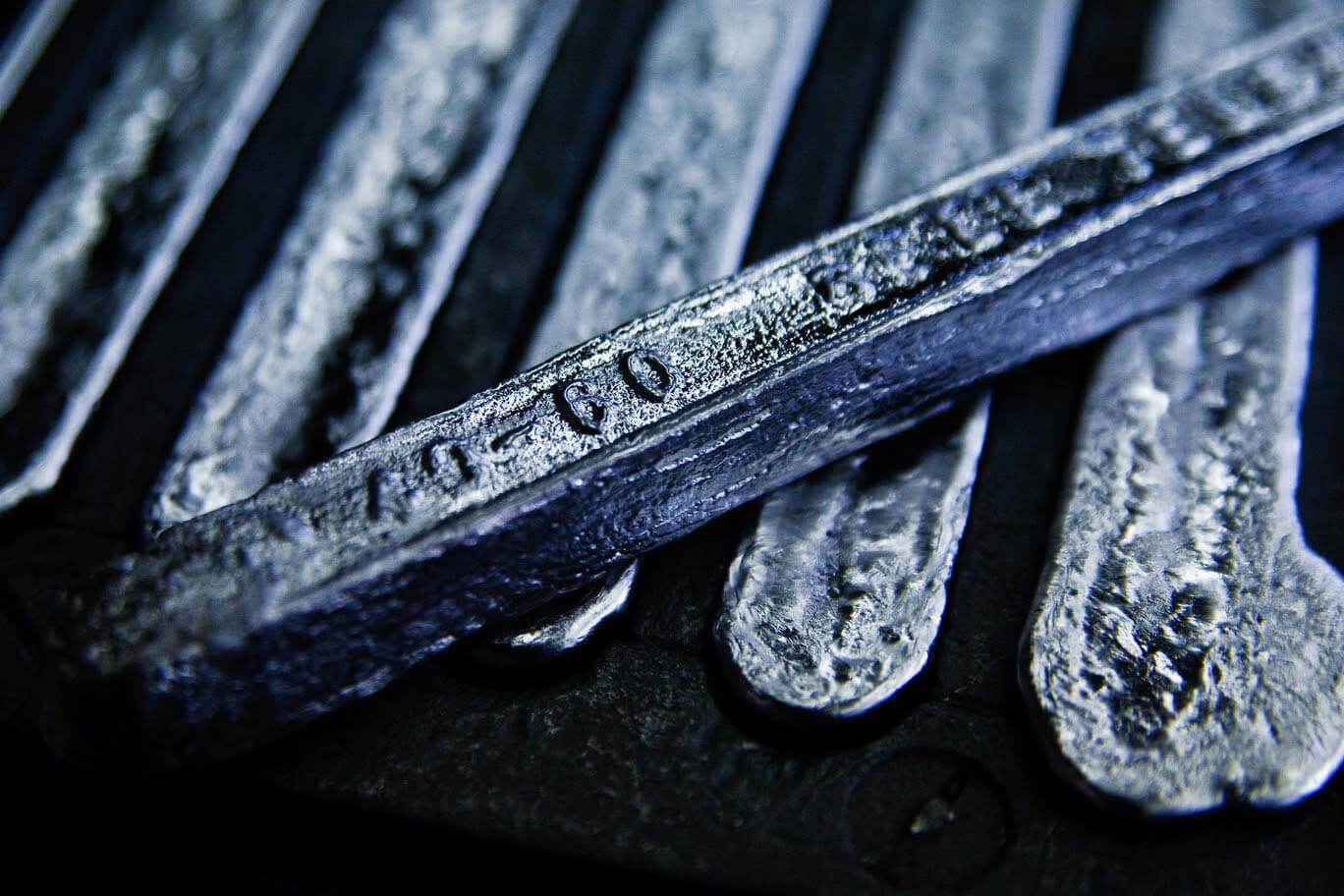
Description
Bar solders are composed of pure metal or metal alloys that are melted down to fuse interconnecting pipes, joints or metal components. Bar solders are resistant to both oxidation and corrosion.
As a leading solder supplier, Canada Metal offers a diverse variety of high purity lead- and tin-based solder products, including pure tin bar, 50/50 and other alloy compositions. We also produce specific alloys such as copper-lead, antimonial lead and other application-specific alloys on client request.
Browse our selection of standard alloys below and contact us today with your requirements.
Formats
1 lb bar of standard alloys in stock. 5 lb, 10 lb and custom formats available on request.
Industries
Commercial Marine, Plumbing, Oil & Gas, Aerospace, Electroplating, Defense, Utilities, Nuclear, Metal Smelting and Refining.
ALLOYS
| %Tin | %Lead | %Antimony | Solidus (F) | Liquidus (F) | Tensile Str. |
| – | 100 | – | 603 | 621 | 1900 |
| 30 | 70 | – | 362 | 490 | 6140 |
| 40 | 60 | – | 362 | 460 | 6320 |
| 50 | 50 | – | 362 | 420 | 6450 |
| 60 | 40 | – | 362 | 375 | 6400 |
| 95 | – | 5 | 450 | 464 | 5900 |
Custom alloys available on request.
Frequently Asked Questions
Bar solder is a solid form of solder typically used in applications such as electronics, plumbing, and metalworking. It is available in various alloy compositions, including lead-free and lead-based formulations. Bar solder is often melted and applied to joints or seams to create a strong bond between metals.
Bar solder offers a high-quality solution for soldering larger joints or for industries that require consistent, reliable results. A trusted wire solder supplier, like Canada Metal, ensures you have access to a wide range of soldering products that meet industry standards and performance requirements.
Bar solder provides precise and reliable joins between metals, ensuring a strong bond that can withstand heat and mechanical stress. It’s especially effective for use in applications like electrical circuit assembly, plumbing, and automotive repairs.
Bar solder is typically used in large-scale industrial applications, such as wave soldering and dip soldering, where solder is melted in pots. Wire solder, on the other hand, is often used for manual soldering tasks, like electronics assembly. As a trusted wire solder supplier, we offer both forms to meet diverse soldering needs.
Bar solder comes in various alloy compositions, including lead-based (e.g., 60/40 tin-lead) and lead-free options (e.g., tin-copper or tin-silver-copper). The choice depends on factors like melting point requirements and regulatory compliance. A knowledgeable wire solder supplier can guide you in selecting the appropriate alloy.
Bar solder is widely used in industries such as electronics manufacturing, plumbing, automotive, and metal fabrication. Its applications include wave soldering, dip soldering, and solder pot operations. Partnering with a reliable wire solder supplier ensures access to high-quality bar solder suitable for your industry.
Absolutely. Bar solder is designed for use with automated soldering equipment like wave soldering machines and solder pots. Its consistent composition and melting characteristics make it ideal for high-volume production environments. Consult your wire solder supplier for compatibility details.
Many wire solder suppliers now offer lead-free bar solder options that comply with environmental regulations like RoHS. Additionally, bar solder can often be recycled, reducing waste and promoting sustainable manufacturing practices.
